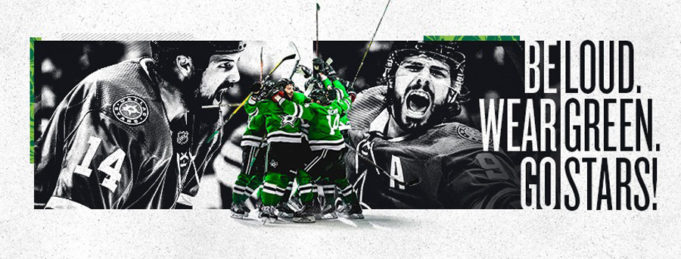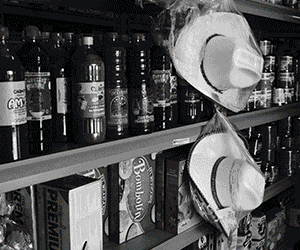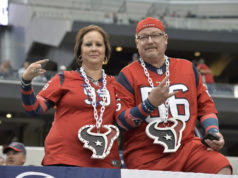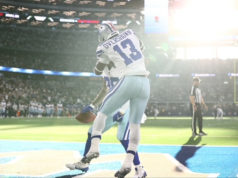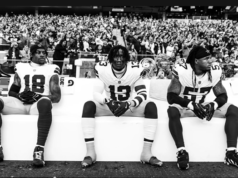It’s become nauseatingly clichéd to speak of 2020 as an unusual year, but, in sports, it was and is truly exceptional in many ways that won’t soon be forgotten. The standard sports rotation schedule that coincides with the Earth’s seasons ceased relevance. Contests occurred whenever and wherever possible the governing body deemed most prudent. Some — like the NHL and NBA — were bubbled, in which players were isolated away from fans, travel, and family in the interest that contact with disease carriers could be tightly regulated. The NFL and MLB adopted more of a devil-may-care attitude and hoped — rather gullibly — that their players would be disciplined enough in the outside world to insulate themselves and consequently their teams and sports from COVID contamination. We’re cruising into a new year with even fewer promises that sports will return to normal anytime soon, but it seems like they’ll be starting on their normal schedules.
As basketball begins and football winds toward a playoff race that the Dallas Cowboys might be involved with only against their best interests, now seems as good a time as any to evaluate North Texas sports in a descending graded manner that public schools have abandoned for at least one more year.
A-Team: Dallas Stars
Ice hockey is holding things down for professional sports in the DFW area. If that isn’t irony, I’m not sure what is. Texas isn’t generally known for being a producer of premier slapshot talent. It’s just not what we’re supposed to be in the sun-scorched state. In fact, Blake Coleman of the Tampa Bay Lightning was the first native Texan to ever win Lord Stanley’s Cup, and that was this season. Despite our Stars’ inability to secure the championship this season, their simple escalation past the first round of the NHL playoffs makes them the unquestioned flag-bearer of Metroplex pro sports for 2020. Dallas didn’t start the season as a favorite to skate the distance and won only one game in their first nine faceoffs. They quickly hooked themselves back on track to an even record by their 17th game of the season. COVID might have been a godsend for this crew as they toiled in the throes of a six-game skid when quarantine melted their ice for five months. When the Stars returned in August, staunch defense helped elevate them past an opening six-game series with the Calgary Flames before a heart-stopping seventh-game-overtime win against the Colorado Avalanche before their dominant five-game win against another regionally unlikely opponent in the Las Vegas Golden Knights. Dallas, who was second in the league in their ability to stop goals, simply couldn’t produce enough offense to win the cup against Tampa Bay, who flexed their offensive dominance in a sixth-game win. The Stars are tied with the Mavericks in total league championships with one each but deserve our collective respect for protecting any modicum of sports relevance for the metro area in recent memory.
B-Teams: Dallas Mavericks, TCU, SMU
Professional ballers took a four-month hiatus in the midst of their seasons before venturing to their Orlando-based bubble to continue balling in front of empty seats, cameras on rails, and faux-crowd noise. All that said, the NBA can be applauded for continuing their season as fluidly as any, partially thanks to their comparably small roster sizes compared with other sports. Our Mavericks are experiencing a renaissance after the retirement of Dirk Nowitzki and the arrival and thriving of point guard Luka Doncic, who is arguably the most exciting young player in the NBA. To aid him, Mark Cuban orchestrated a trade for the constantly injured Kristaps Porzingis. The 7-foot-3 Latvian forward from the Knicks and Doncic both battled injuries throughout the year, but the Mavs performed consistently with dynamic offense at the dribble of Doncic and never lost more than two consecutive tips during the regular season. The Mavs were eliminated during the first round of the Western Conference playoffs against the L.A. Clippers, who consequently lost to the Denver Nuggets, who would then lose to the eventual champion L.A. Lakers. The Mavericks’ seventh-place finish during the regular season meant their playoff loss wasn’t unexpected. The health of Cuban’s roster hamstrung them at several points in the season. Cuban will face difficult decisions in the coming years as Doncic has become a household name and could be traded as a superstar to create a more well-rounded squad.
TCU football, as we’ve discussed extensively here at the Weekly, fit the definition of a “B” or average season perfectly by finishing fifth among the 10 teams in the Big 12 conference. An impressive win over Oklahoma State as well as victories over all of their in-state opponents elevates them from a lower placement, even considering their losses to Kansas State and West Virginia.
SMU football might be the biggest surprise of the year. The Mustangs began the season at breakneck speed with five wins in a row on the arm of former Longhorn Shane Buechele. Top-10 Cincinnati whipped the ponies’ hopes of breaking the group-of-five ceiling. Unfortunately, the Dallasites caught a limp in November, losing to Tulsa and East Carolina in consecutive games. Still, a 7-3 finish from the parkies is an impressive effort for a region that might be short on football pride this year.
C-Minus Team: Dallas Cowboys
Another year, another round of soul-searching for lifelong fans of a team that seems more brand than balls with every passing season. The Cowboys of my parents’ generation made their living and won their championships with something called the “Doomsday Defense.” Veteran defenders like Bob Lily and Ed “Too Tall” Jones must be feeling indescribable shame in today’s group, who are statistically the worst defense in franchise history. The Cowboys began this season with hope from a vaunted offense and star-studded receiving corps before a mildly grotesque injury to quarterback Dak Prescott after a scramble gone wrong looked like it would derail the silver and blue’s playoff hopes for good. (There’s still a chance.) Even with a serviceable and veteran backup in former Horned Frog Andy Dalton, these Cowboys are winning just enough games to avoid a franchise-shifting draft pick. Dead money in the form of an overpaid Ezekiel Elliott and a formerly formidable offensive line, who have both been reduced to shells of their former glory, have left little hope for a team who can’t even register near the top of one of worst NFL divisions ever.
Fail — No Credit: Texas Rangers
Welcome to the epitome of modern DFW sports mediocrity. The fact that the City of Arlington just built perhaps one of the most beautiful and technologically advanced homes for this shit show of a franchise is just honey mustard on a turd sandwich. The Rangers finished their abbreviated regular season with just 22 wins versus 38 losses and won only a quarter of their road games. The owners don’t spend the requisite money to field a competitive squad, and front-office leadership is continually rewarded for a product that to call “mediocre” is the height of decorum. The only team in pro baseball with fewer wins last season were the lowly Pittsburgh Pirates. I thought sincerely about sticking our Rangers with a “D” for their season, but then I would have failed. Pandemic or no pandemic, this team is unwatchable.



